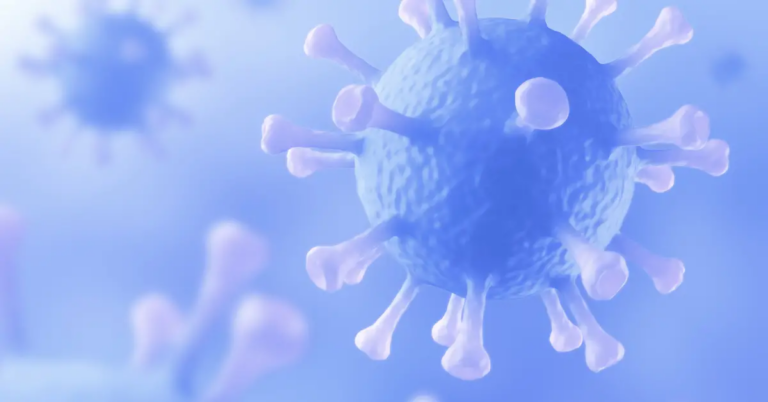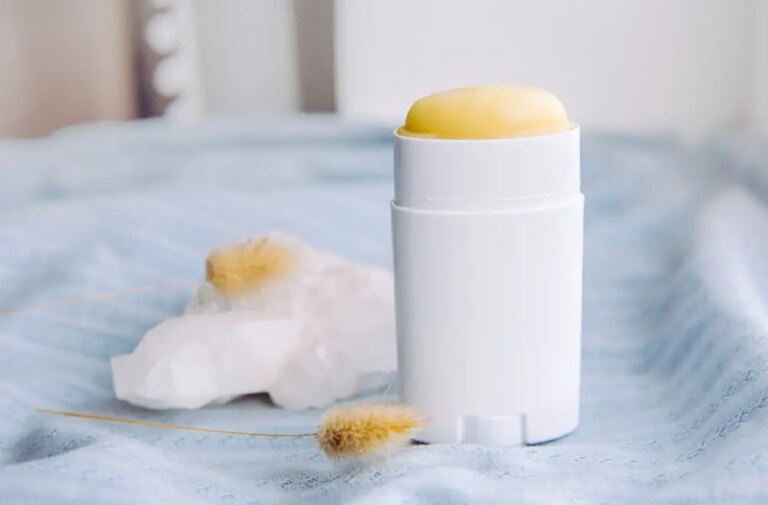Sexual abstinence, whether voluntary or involuntary, can significantly affect the body and mind. In this article, we delve into the effects of the lack of sexual activity on the body, exploring both its physical and psychological impacts. By understanding the health advantages of sexual activity and the implications of abstaining, we can shed light on this crucial aspect of human sexuality and its influence on overall well-being. Get ready to uncover the multifaceted consequences of sexual abstinence, helping you make informed decisions about your sexual health journey.
Physical Impact of Sexual Abstinence
Choosing to abstain from sexual activity can lead to surprising changes in the human body. It’s essential to be aware of these signs so you can make informed decisions about your sexual health and well-being.
Vaginal Tightness and Pelvic Floor Health
Contrary to popular belief, a long period of sexual abstinence does not cause vaginal tightening. However, the lack of sexual activity can weaken the pelvic floor muscles, leading to issues such as urine leakage or decreased orgasm quality.
A study published in the International Urogynecology Journal associated regular sexual activity with pelvic floor muscle strength, which is essential for overall vaginal health. If you’re dealing with persistent urinary issues, you may want to try these tips. [1]
Erectile Dysfunction in Men
Men who abstain from sex for extended periods may have a higher chance of developing erectile dysfunction. A 2008 study published in the American Journal of Medicine found a correlation between sexual inactivity and an increased risk of erectile dysfunction. Regular sexual activity positively impacts erectile health and can help prevent such issues. [2]
Immune Function
Reduced sexual activity may slightly increase susceptibility to illnesses and infections. In a fascinating 2021 study, researchers discovered that engaging in sexual activity may offer protection against COVID-19 infection. The findings suggest increased sexual activity can boost immunity, leading to lower disease incidence.
Adopting a healthy lifestyle, including a balanced diet, adequate sleep, exercise, meditation, and yoga, can help boost the immune system even without sexual activity. For instance, incorporating the best tea for a stronger immune system into your daily regimen could be beneficial. [3]

Cardiovascular Health
A healthy sex life can contribute positively to cardiovascular health, providing hormonal and aerobic benefits. A 2016 study revealed that good sexual activity might protect women from heart conditions later in life. While sexual abstinence itself may not directly harm cardiovascular health, the absence of these benefits could impact overall heart health. [4]
Psychological Impacts of Sexual Abstinence
In addition to its physical consequences, sexual abstinence can give rise to psychological symptoms. If you find yourself experiencing any of these signs, it’s essential to recognize and address them to ensure your emotional well-being.
Mental and Emotional Well-Being
Another interesting study conducted amid the pandemic revealed that those who were sexually active during the lockdown had lower anxiety and depression. That said, a lack of sexual activity may increase stress reactions as the mood-enhancing and stress-reducing benefits of regular sex are absent. [5]
Finding alternative ways to release happiness-inducing hormones is crucial. Engaging in physical exercise, socializing with friends, and practicing self-care activities can help maintain mental and emotional well-being.

Cognitive Abilities
Engaging in sexual activity has been linked to neuron growth in the brain’s hippocampus, which is responsible for memory and cognitive function. While sexual abstinence won’t enhance cognitive abilities, participating in intellectually stimulating activities can help keep the brain sharp. [6]
Libido and Sexual Desire
Medical experts have asserted that prolonged sexual abstinence can result in a decline in sexual desire. To maintain a healthy sex drive, individuals can engage in activities like masturbation, which can still trigger the release of mood-enhancing hormones. Balancing your hormones can also play a significant role in managing your libido. Here are some tips on how to balance your hormones and get your life back. [7]

My Personal RX for Better Sexual Health & Overall Well-Being
Sexual health is deeply connected to your overall physical and mental wellness. After years of treating patients, I’ve learned that improving sexual function often requires addressing cardiovascular health, hormonal balance, stress management, and cellular energy. Your body needs proper blood flow, balanced hormones, and adequate energy production to maintain a healthy sex drive and sexual function. Here are my recommendations for supporting sexual health through a whole-body approach.
- Support Cardiovascular Health for Better Blood Flow: Sexual function depends heavily on healthy blood circulation. Omega-3 Fish Oil supports cardiovascular health by maintaining healthy blood vessels and promoting optimal blood flow throughout the body. This supplement also promotes healthy blood sugar and metabolism, supports cognitive function and balances mood, increases visual and ocular health, maintains a normal inflammatory response, and supports healthy skin, joints, and connective tissue.
- Boost Cellular Energy Production: Sexual vitality requires cellular energy at every level. CoQ10 is essential for heart health and muscular function, supporting ATP production for sustained cellular energy. This powerful antioxidant protects cells from oxidative damage, maintains cardiovascular health, and helps your body produce the energy needed for an active, fulfilling sex life.
- Maintain Regular Physical Activity: Exercise improves blood flow, boosts mood-enhancing hormones, and increases stamina. Aim for at least 30 minutes of moderate exercise most days of the week to support sexual health and overall vitality.
- Prioritize Quality Sleep: Adequate rest is essential for hormone production and sexual desire. Poor sleep can decrease testosterone levels and reduce libido in both men and women. Aim for seven to nine hours of quality sleep each night.
- Manage Stress Through Daily Practices: Chronic stress elevates cortisol levels, which can suppress sex hormones and decrease libido. Practice stress-reduction techniques like meditation, deep breathing, yoga, or activities you enjoy to keep stress hormones balanced.
- Nourish Your Body with Whole Foods: A diet rich in fruits, vegetables, lean proteins, and healthy fats supports hormone production and cardiovascular health. Avoid excessive processed foods, sugar, and alcohol, which can negatively impact sexual function.
- Stay Hydrated Throughout the Day: Proper hydration supports blood volume and circulation, both essential for sexual function. Dehydration can decrease energy levels and sexual desire, so drink adequate water daily.
- Maintain Open Communication: Sexual health includes emotional intimacy and communication with your partner. Discuss desires, concerns, and boundaries openly to create a fulfilling sexual relationship that benefits both partners.
- Schedule Regular Health Screenings: Many conditions that affect sexual function, including diabetes, high blood pressure, and hormonal imbalances, can be detected early through regular health checkups. Work with your healthcare provider to address any underlying health issues.
- Practice Self-Care and Body Positivity: Confidence and self-acceptance play significant roles in sexual satisfaction. Engage in activities that make you feel good about yourself, whether through exercise, hobbies, or personal grooming that boosts your confidence.
Sources:
- Kanter, G., Rogers, R. G., Pauls, R. N., Kammerer-Doak, D., & Thakar, R. (2015). A strong pelvic floor is associated with higher rates of sexual activity in women with pelvic floor disorders. International Urogynecology Journal, 26(7), 991–996. https://doi.org/10.1007/s00192-014-2583-7
- Koskimäki, J., Shiri, R., Tammela, T. L., Häkkinen, J., Hakama, M., & Auvinen, A. (2008). Regular intercourse protects against erectile dysfunction: Tampere Aging Male Urologic Study. The American Journal of Medicine, 121(7), 592–596. https://doi.org/10.1016/j.amjmed.2008.02.042
- Ramadhan, M. A., & Hashim, H. (2021). THE EFFECTS OF SEXUAL FREQUENCY AND IMMUNE BOOSTING MINERAL INTAKE ON IMMUNE STATUS IN COVID-19 SUSCEPTIBLE INDIVIDUALS. Fertility and Sterility, 116(3), e113. https://doi.org/10.1016/j.fertnstert.2021.07.316
- Liu, H., Waite, L. J., Shen, S., & Wang, D. H. (2016). Is Sex Good for Your Health? A National Study on Partnered Sexuality and Cardiovascular Risk among Older Men and Women. Journal of Health and Social Behavior, 57(3), 276–296. https://doi.org/10.1177/0022146516661597
- Mollaioli, D., Sansone, A., Ciocca, G., Limoncin, E., Colonnello, E., Di Lorenzo, G., & Jannini, E. A. (2021). Benefits of sexual activity on psychological, relational, and sexual health during the COVID-19 breakout. The Journal of Sexual Medicine, 18(1), 35–49. https://doi.org/10.1016/j.jsxm.2020.10.008
- Leuner, B., Glasper, E. R., & Gould, E. (2010). Sexual experience promotes adult neurogenesis in the hippocampus despite an initial elevation in stress hormones. PLOS ONE, 5(7), e11597. https://doi.org/10.1371/journal.pone.0011597
- Levi, A. (2022). Haven’t Had Sex in a While? How Lack of Sex Can Affect Your Health. Health. https://www.health.com/condition/sexual-health/how-no-sex-affects-body











 Subscribe to Ask Dr. Nandi YouTube Channel
Subscribe to Ask Dr. Nandi YouTube Channel









